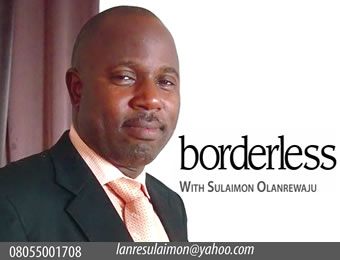Adewole had asked the NHIS boss to proceed on a three-month suspension following various petitions and allegations against Yusuf to allow for uninterrupted investigation. He then directed the setting up of an investigative committee to look into the allegations in accordance with the Public Service Rules. But in October, the Minister extended the suspension indefinitely because the committee investigating the Executive Secretary returned a verdict of culpability. The committee submitted that he contravened the Procurement Act of 2007 and indicted him of “dubious payment of N919million to consultants for staff training.” It, therefore, recommended that he be probed by the Economic and Financial Crimes Commission (EFCC).
Subsequently, the Minister, in a memo to Yusuf, said that he had forwarded the report to the President, adding, “While awaiting Mr President’s directives and considering that the committee found you culpable in many areas of your performance as the Executive Secretary of the scheme, I am further extending your suspension from office pending the decision of Mr President on the report.”
But in his reaction to the three-month suspension, Professor Yusuf said the Health Minister lacked the powers to either discipline or suspend him. The NHIS Executive Secretary went ahead to advance five reasons for the ineffectuality of the Minister’s action of suspending him.
Yusuf said according to the NHIS Act, particularly Section 4 and 8, “My appointment and removal from office whether by way of suspension or otherwise is at the instance of the President of the Federal Republic of Nigeria.”
He added, “Unless removed from office by the President under circumstances specified in the NHIS Act, my appointment is for a period of five years subject to further term of the same period at the discretion of the President.”
Professor Yusuf noted also that, “Although by virtue of Section 47 of the NHIS Act, you (Minister) are empowered to give directives of a general nature to the Governing Council of the Scheme and in the absence of the Council, you have Presidential mandate to exercise the powers and functions of the Council. Since the powers and functions of the Council do not include discipline, suspension or removal of the Executive Secretary of the Scheme from office, the directive in your letter under reference cannot find comfort under the said section or presidential mandate.”
The NHIS boss also averred that the letter of suspension did not follow Public Service Rules since no prima facie case had been established against him in respect of the petitions alluded to by the Minister. He noted that having a plethora of petitions against a public office holder did not warrant the suspension of the officer, adding that there were also petitions against the Minister. Yusuf stated also that given the criminal nature of most of the allegations in the petitions, a security/investigative agency such as the ICPC would have been best for the investigation and not a Ministerial Committee.
As it has turned out, it is the Minister holding the short end of the stick because in the letter written by the President’s Chief of Staff to the Executive Secretary reinstating him, no mention of the investigation or the petition was made. The president only asked the NHIS boss to cooperate with the Minister.
Now, what kind of cooperation does the president expect? Is it the type between Dr Maikanti Baru and Dr Ibe Kachikwu? How can a cat cooperate with a rat? How can the NHIS boss cooperate with a Minister he does not respect? How can Professor Yusuf cooperate with Professor Adewole who wanted him removed from his plum position? How can the Health Minister work with the NHIS boss who believes the Minister is undeserving of his office? How can two professionals who see the same issue from opposing views cooperate on the same issue? Trust, the foundation for any worthwhile relationship is dead between the two. Since the duo do not trust each other how can they cooperate?
But the fact which Professor Adewole must come to terms with is that he is an outsider in the government of which he is a cabinet member. If, without any recourse to the report of the committee set up by the minister at the instance of the former Acting President, Professor Yemi Osinbajo, the president recalled and reinstated the NHIS boss, the implication is that Professor Yusuf has the ears of the president. By extension, it also means that the president has scant regard for Professor Adewole. This is not unknown to the NHIS boss and will impact on how he relates with the Minister going forward. He will never see himself as being subordinate to the Minister.
Professor Yusuf, in his response to his suspension by Professor Adewole hinted that the Minister has limited powers on the NHIS. Now, if a Health Minister cannot effectively superintend over a nation’s health insurance scheme, which is meant to make health services available and affordable to all citizens, where lies is power?
Going by the above, the best thing for Isaac Folorunsho Adewole, a surgeon of global repute, a highly sought after Professor of Medicine, a former Provost of the College of Medicine, University of Ibadan and a former university Vice Chancellor is to bow out graciously before he is booted out disgracefully. If he loses control over the NHIS, he will surely lose control over other agencies in his ministry in due course. So, he is better out with his dignity intact than wait to be de-robed of all honour.
But the Minister reserves the right to discountenance this counsel because quitting a seemingly prestigious position is a matter of honour!






